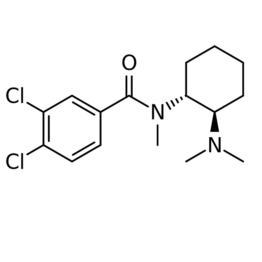Description
Understanding Acetyl Fentanyl vs Fentanyl: Risks, Effects, and Legal Status
Acetyl Fentanyl has emerged as a potent synthetic opioid, raising significant public health concerns. This article delves into the details of Acetyl Fentanyl, covering its chemical nature, effects, risks, and legal status.
What is Acetyl Fentanyl?
Chemical Composition and Origin
Acetyl Fentanyl is a powerful synthetic opioid, an analog of fentanyl, which means it shares a similar chemical structure but has slight variations. It was initially developed for research purposes and not intended for medical use. Despite its structural similarity to fentanyl, Acetyl Fentanyl is even more potent, making it highly dangerous.
Comparison with Fentanyl
Fentanyl itself is approximately 50 to 100 times more potent than morphine, while Acetyl Fentanyl can be even more potent than fentanyl. This potency makes Acetyl Fentanyl extremely hazardous, especially when used without proper medical oversight.
Effects of Acetyl Fentanyl
Intended and Unintended Effects
Like other opioids, Acetyl Fentanyl acts on the central nervous system. It can induce intense euphoria, pain relief, and sedation. However, its high potency also brings severe unintended effects, including respiratory depression, which can be fatal.
Physical and Psychological Impact
Short-term effects include dizziness, nausea, confusion, and drowsiness. Long-term use can lead to tolerance, physical dependence, and severe withdrawal symptoms. Psychological effects often involve anxiety, depression, and cognitive impairments.
Risks Associated with Acetyl Fentanyl
Overdose Potential
The primary risk of Acetyl Fentanyl is its high potential for overdose. Due to its potency, even small amounts can be lethal. Overdoses can occur quickly, leading to respiratory failure, coma, and death. The margin for error in dosing is extremely small.
Contamination and Illicit Use
Acetyl Fentanyl is often found in illicit drug markets, frequently mixed with heroin or other substances. Users may be unaware they are consuming it, increasing the risk of accidental overdose. The lack of regulation and quality control in illicit drug production exacerbates these dangers.
Health Consequences
Chronic use of Acetyl Fentanyl can cause severe health issues, including organ damage, increased risk of infectious diseases (such as HIV/AIDS and hepatitis), and significant mental health deterioration. The risk of fatal overdose remains ever-present with continuous use.
Legal Status of Acetyl Fentanyl
United States Regulation
In the United States, Acetyl Fentanyl is classified as a Schedule I substance under the Controlled Substances Act. This classification denotes that it has a high potential for abuse and no accepted medical use, making its manufacture, distribution, and possession illegal.
International Perspective
Internationally, Acetyl Fentanyl is similarly regulated under various countries’ drug control laws. Many nations have recognized its dangers and have classified it as a controlled substance to curb its distribution and use.
Enforcement and Challenges
Law enforcement agencies face significant challenges in controlling the spread of Acetyl Fentanyl. Its potent nature and the rise of clandestine laboratories contribute to its proliferation. Efforts to control it include increased surveillance, international cooperation, and public awareness campaigns.
Addressing the Crisis
Harm Reduction Strategies
To combat the risks associated with Acetyl Fentanyl, harm reduction strategies are essential. These include providing access to naloxone, a medication that can rapidly reverse opioid overdoses, and establishing safe consumption spaces where users can receive medical supervision.
Treatment and Rehabilitation
Effective treatment programs are crucial for individuals addicted to Acetyl Fentanyl. These programs should offer comprehensive services, including detoxification, counseling, and long-term support to address both physical dependence and psychological issues.
Public Education and Awareness
Raising public awareness about the dangers of Acetyl Fentanyl is vital. Educational campaigns can inform the community about the risks, signs of overdose, and available resources for help and treatment.
Conclusion
Acetyl Fentanyl poses a significant threat due to its extreme potency and high risk of overdose. Understanding its effects, risks, and legal status is crucial in addressing the challenges it presents. Through harm reduction, effective treatment, and public awareness, we can mitigate the dangers associated with this powerful synthetic opioid.
By staying informed and proactive, communities can better protect themselves and support those affected by Acetyl Fentanyl.












Theresa Beauchamp –
High praise for excellent customer service via phone and smooth web system for ordering.
Bellou –
I writing a review here to make other buyers of fent analogs know it’s save to buy from them. They’ve delivered to me twice